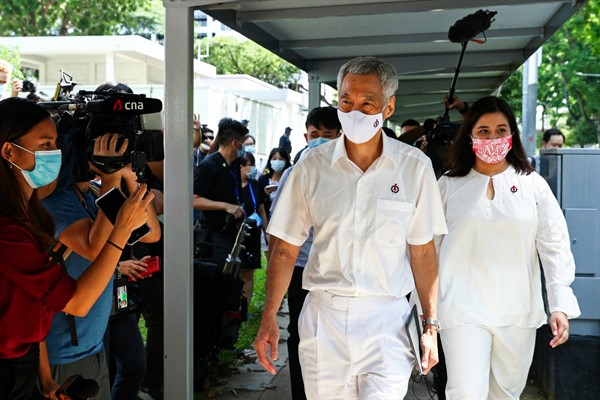Prime Minister Lee Hsien Loong declared in a televised address last week that Singapore would hold its next general election on July 10. Lee and other members of the long-ruling People’s Action Party, or PAP, have expressed confidence in being able to hold an election safely and effectively, even though Singapore has had more than 43,000 confirmed cases of COVID-19, the most in Southeast Asia on a per capita basis.
In his address, Lee noted the difficulty of determining how long it would take to wait out the pandemic, stating there was no guarantee that Singapore could hold a coronavirus-free election by April 2021, when the current government’s mandate officially expires. Lee may have also calculated that it would be more advantageous to call the election now, before the full weight of COVID-19’s economic impact has hit Singapore, and potentially damaged the ruling party’s image.
The PAP has dominated Singapore’s politics since the city-state became an independent republic in 1965; it currently holds 83 of the 89 contested seats in Parliament. This month’s campaign, however, could be its most challenging one since at least the 2011 election, when the PAP’s share of the popular vote fell to 60 percent, its lowest mark ever. “I think this is going to be a very tough election,” Foreign Minister Vivian Balakrishnan told CNBC this week.

